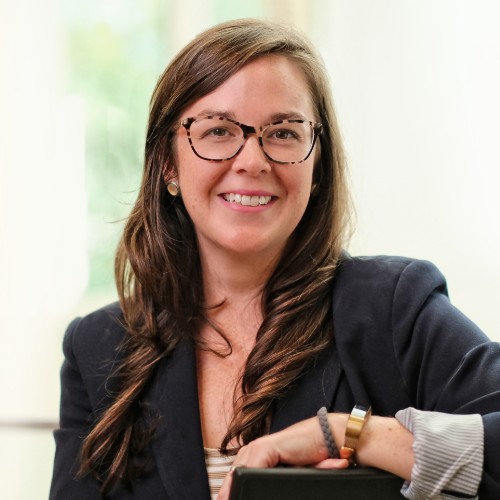Take 5 with Amanda Horton
Amanda Horton
Sr. Associate Director, Integrative Student Services, WFU School of Business
1. How do you define success for yourself? What has helped you to be successful?
When I focus on defining success for myself, the first thing I do is make it personal. There will always be external expectations held up in front of me as measures of success – some of those factors I should consider in my definition and others I shouldn’t. I try to intentionally discern what are truly the external expectations that are important for the matter at hand and align those with my personal expectations and standards. I find success in its truest form when my intentions, efforts, and impact align.
2. Think of a time that you faced a challenge, obstacle, or roadblock. How did you get through that and what did you learn?
Whenever I’m faced with a challenge, and I’m afforded the luxury of time, I make sure I look at the problem from multiple perspectives. While there may be a quick surface solution, looking from other perspectives before acting ensures I’m striving toward a more inclusive solution. Also, knowing when to ask for help is vital.
3. Who are your people (either by name or role) who help you to be successful/confident/intentional/reflective/any other descriptor you want to use? And how have they helped you?
I’ve had great supervisors along the way who have challenged and supported me professionally. Each of them has been unique in their management style and each has drawn-out new things about me that have helped me to grow. Likewise, the team I supervise are equally as inspiring, I learn so much from them on a regular basis. The point is that you can find ways to grow all around you even when it is a painful moment.
My family also serves as a personal balance and a trusted sounding board.
4. How did you find your people?
Often times it is rooted in commonality, a shared goal, or passion but its honed by trust and respect. Even if we don’t always see eye to eye knowing that we have each other’s best interest at heart goes a long way.
5. What advice would you give to Wake Forest students as they look for their people?
It takes time and vulnerability. We live in a current age where things are instant and seemingly everyone wants to be THE best as soon as possible. In some ways, that’s the opposite of what it takes to find your people! Instead you have to be patient and you have to work at it, the best relationships take time, are messy, and transparent.

